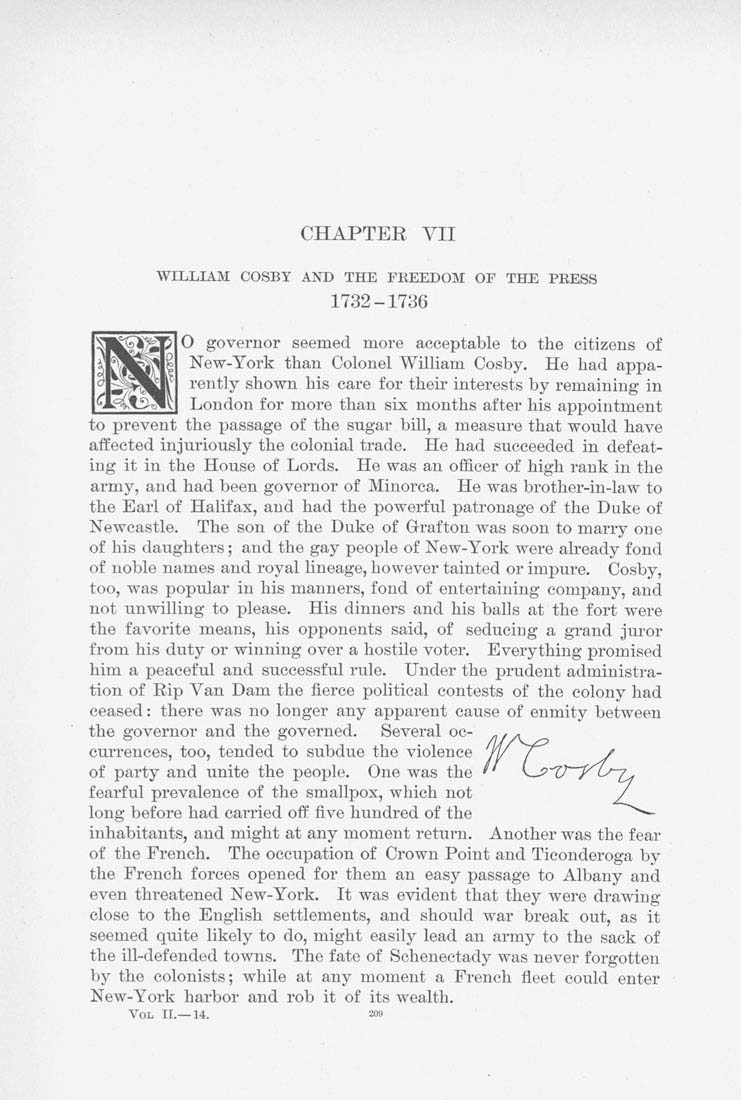CHAPTER VII
WILLIAM COSBY AND THE FREEDOM OF THE PRESS
1732-1736
O governor seemed more acceptable to the citizens of
New-York than Colonel William Cosby. He had appa¬
rently shown his care for their interests by remaining in
London for more than six months after his appointment
to prevent the passage of the sugar bill, a measure that would have
affected injuriously the colonial trade. He had succeeded in defeat¬
ing it in the House of Lords. He was an officer of high rank in the
army, and had been governor of Minorca. He was brother-in-law to
the Earl of Halifax, and had the powerful patronage of the Duke of
Newcastle. The son of the Duke of Grafton was soon to marry one
of his daughters; and the gay people of New-York were already fond
of noble names and royal lineage, however tainted or impure. Cosby,
too, was popular in his manners, fond of entertaining company, and
not unwilling to please. His dinners and his balls at the fort were
the favorite means, his opponents said, of seducing a grand juror
from his duty or winning over a hostile voter. Everything promised
him a peaceful and successful rule. Under the prudent administra¬
tion of Rip Van Dam the fierce political contests of the colony had
ceased: there was no longer any apparent cause of enmity between
the governor and the governed. Several oc¬
currences, too, tended to subdue the violence
of party and unite the people. One was the
fearful prevalence of the smallpox, which not /
long before had carried off five hundred of the ^""^^
inhabitants, and might at any moment return. Another was the fear
of the French. The occupation of Crown Point and Tieonderoga by
the French forces opened for them an easy passage to Albany and
even threatened New-York. It was evident that they were drawing
close to the English settlements, and should war break out, as it
seemed quite likely to do, might easily lead an army to the sack of
the ill-defended towns. The fate of Schenectady was never forgotten
by the colonists; while at any moment a French fleet could enter
New-York harbor and rob it of its wealth.
Vol II.—14. 209
^o-r^
|








